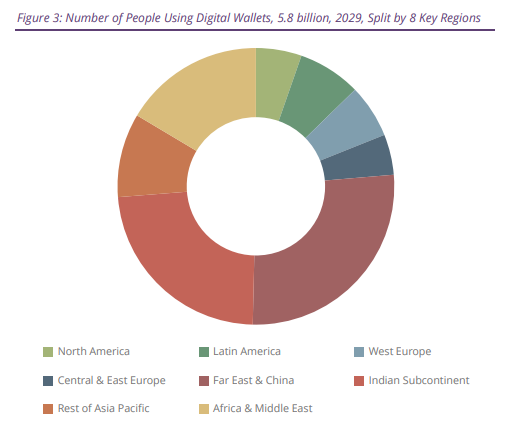Introduction
Our comprehensive guide on addressing medical data entry challenges for healthcare professionals. In today’s digital age, accurate data entry is essential for healthcare organizations to deliver quality care, streamline processes, and meet regulatory requirements. However, healthcare experts often face various challenges when it comes to entering and managing medical data. In this guide, we will explore common data entry challenges and provide practical solutions to overcome them.
Understanding the Importance of Accurate Medical Data Entry
Accurate medical data entry is the foundation of efficient healthcare practices. It involves entering patient information, medical history, diagnoses, treatment plans, medications, and more into electronic health records (EHR) systems or other databases. These records are vital for healthcare professionals to make informed decisions, track patient progress, and ensure continuity of care.
Entering medical data demands precision and attention to detail. Without careful handling, this process can be time-consuming and prone to errors. Mistakes in data entry can have severe consequences, including misdiagnosis, incorrect medication administration, inappropriate treatment plans, and compromised patient safety. It is crucial for healthcare professionals to address these challenges and adopt efficient strategies for accurate data entry.
Common Challenges in Medical Data Entry
Let’s delve into some of the common challenges healthcare professionals/experts encounter with medical data entry.
-
Data Entry Fatigue
In fast-paced healthcare settings, data entry fatigue is common due to the repetitive nature of the task. This can lead to increased errors and decreased productivity. It is essential to recognize this challenge and implement strategies to prevent data entry fatigue.
-
Time Constraints
Healthcare experts juggle multiple responsibilities, including patient care, documentation, and administrative tasks. Time constraints can make it challenging to allocate sufficient time for accurate and detailed data entry. Finding ways to streamline the data entry process can help healthcare experts save time without compromising accuracy.
-
Complexity of Medical Terminology
The healthcare industry is filled with complex medical terminologies, abbreviations, and acronyms, posing a challenge for accurate data entry, especially for new healthcare professionals or those in specialized fields. A solid understanding of medical terminology and the use of technology can help overcome this challenge.
-
Integration Challenges
Integrating data from different sources, such as laboratory results, imaging reports, and external referrals, can be challenging. Incomplete or delayed data integration can hinder healthcare professionals’ access to critical information for treatment decisions. Implementing interoperable systems and fostering collaboration between providers and systems can help overcome integration challenges.
-
Security and Confidentiality
Protecting patient data from unauthorized access, breaches, or loss is a top priority for healthcare professionals. However, ensuring data security while maintaining accessibility can be a complex task. Implementing robust security measures, training staff on data protection protocols, and leveraging encryption technology can help safeguard patient information.
Practical Strategies to Overcome Data Entry Challenges
Addressing medical data entry challenges requires a combination of practical strategies and advanced technological solutions. Here are some effective strategies to improve data entry accuracy and efficiency:
-
Implement User-Friendly EHR Systems
Consider investing in user-friendly electronic health record (EHR) systems that simplify data entry processes and provide built-in validation tools. User-friendly interfaces, smart prompts, and automatic error checks can significantly reduce data entry errors.
-
Offer Comprehensive Data Entry Training
It’s impractical to train healthcare professionals for accurate data entry; it’s not their primary role. Outsourcing medical data management to professionals like Infognana ensures organization and accuracy, easing the burden on healthcare staff. This allows them to focus on patient care.
-
Leverage Technology
Utilize advanced technologies, such as voice recognition software, optical character recognition (OCR), and artificial intelligence (AI) algorithms, to automate data entry tasks. These technologies can help reduce manual entry errors and improve overall efficiency.
-
Prioritize Data Quality Checks
Regularly conduct data quality checks to identify and correct inaccuracies, inconsistencies, and missing information. Implement data validation rules, alerts, and audits to maintain high-quality data for effective decision-making.
-
Encourage Collaboration and Communication
Promote active collaboration and open communication between healthcare professionals, departments, and systems involved in data entry. Establish clear channels for reporting errors, requesting clarifications, and sharing updates, fostering a culture of accountability and continuous improvement.
-
Enhance Data Security Measures
Deploy strong data security measures, including encryption, access controls, and regular backups, to protect patient data. Regularly update software and hardware to address security vulnerabilities.
Conclusion
Addressing medical data entry challenges is vital for healthcare professionals to ensure accurate, efficient, and secure management of patient information. Healthcare organizations can maximize the benefits of electronic health records systems and provide quality patient care by understanding common challenges and implementing practical strategies. Remember, accurate data entry is fundamental to delivering safe and effective healthcare services.
At Infognana, we understand the importance of accurate and efficient medical data entry. We offer tailored medical data entry solutions for healthcare professionals, allowing them to prioritize patient care. To learn more about our offerings, contact us today.

